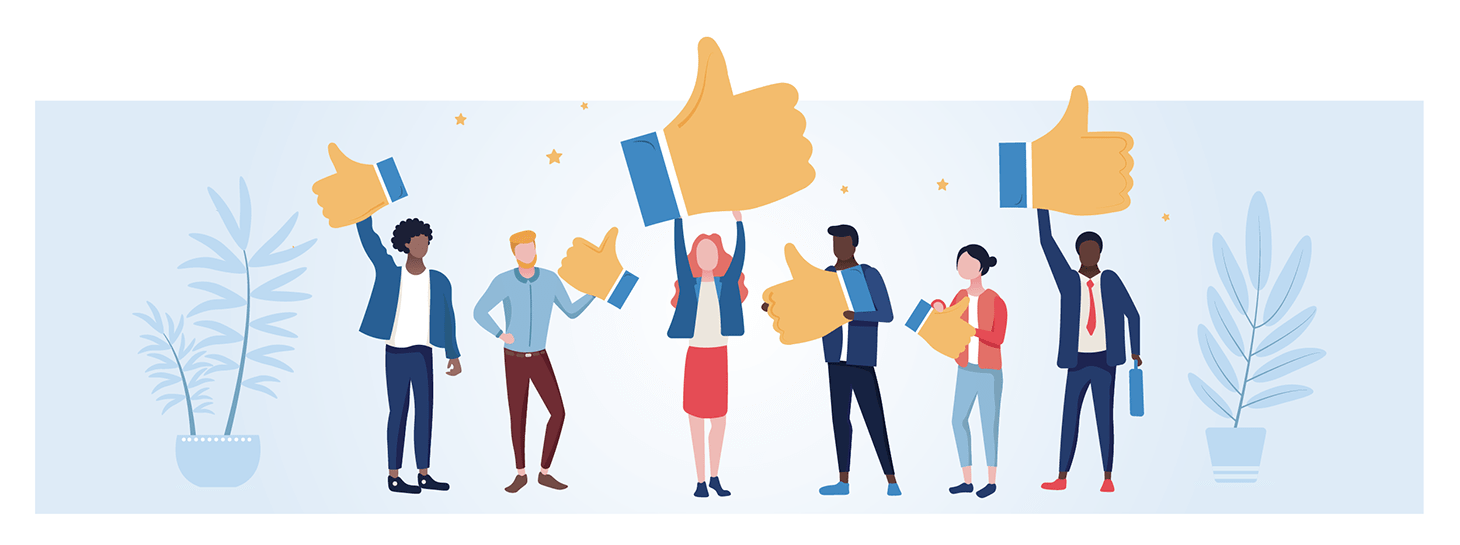TLF Gems Newsletter April 2021
Your monthly CX and insight newsletter from TLF Research
If your company puts rules before people and inflexibility before logic, you have a problem.
Peter Shankman
If I had to boil down everything I've learned about customers and business over the last 20 years into two words, they would be empathy and communication.
Understanding how things look from someone else's perspective, and therefore knowing what they need to hear, is the key to customer experience, management, service design, marketing, employee engagement, presenting data, and pretty much everything else that matters.
The single most important thing underpinning it is your ability to ask good questions, and to pay attention to what people say. This month's links are all (in different ways) about asking better questions.
Thanks for reading,
Stephen
Here are 7 things we think are worth you time this month

The Power of Positive Surveying
Interesting piece from HBR on research which shows that asking customers for a positive comment at the beginning of your survey leads to increased spending. Aside from the direct impact on those customers, particularly interesting in B2B markets, I think there's always a good case for making sure your surveys look for good news as well as bad news. "Most organizations use customer surveys to measure satisfaction, pinpoint areas for improvement, or simply allow disgruntled patrons to vent."
Read: The Power of Positive Surveying

Sick of Zoom Meetings? Try a Reverse Meeting
I like this idea of "reverse meetings" from Cal Newport. Doesn't work for everything, but when you need input from a lot of people I think it's a good idea to question the habit of always arranging a meeting, instead of seeking individual feedback. "If you have a topic you want to discuss with a group of your colleagues, instead of gathering them all together in a new meeting, you instead visit each of their office hours one-by-one to talk it through."

When a Question is the Answer
Thought-provoking first entry in Rob Walker's excellent Art of Noticing newsletter, about the times we fail to attend to the people we're talking to (relevant whether you're a researcher, a manager, or just a human being), and a suggestion that whenever you're tempted to make a judgement, you should ask a question instead. "One of the wince-inducing rituals of my job as a journalist is transcribing interviews and listening to myself fail to listen. There’s always at least one moment when I miss a chance to pursue (or even step on or get in the way of) a source’s smart point or original observation by rushing to (try to) make my own."
Read: When a Question is the Answer

When the Answer Asks the Question
Love this story from Dave Trott about the mechanic who invented a device to assist in delivering babies, after watching a YouTube video about extracting a cork stuck inside a wine bottle. The device is still in testing, but the moral of the story is that sometimes we come up with a solution without knowing what problem it solves! "We had a motto I learned from working with John Webster: 'The best time to look for an idea is before you need it.'"
Read: When the Answer Asks the Question

The Benefit of the Office: Competition
Provocative piece from Helen Edwards, arguing that the main benefit of being back in the office is not team-working and collaboration, but competition with our colleagues. "Competition is never something that feels comfortable, but the sensation of a rival’s hot breath on the neck is the ultimate spur to go all out for the line."
Read: The Benefit of the Office: Competition

Hubs of Innovation
Interesting report from the Connected Places Catapult on the ingredients for creating a successful hub of innovation. I particularly like the emphasis on ecosystem over location. "A momentous opportunity exists for more places to take advantage of the innovation economy to accommodate jobs and build inclusion after Covid-19."

Top Reads: Invisible Women
This is a big book with a very simple basic point: biases in the data we use to make decisions lead to systemic inequalities in the way the world works. With the assumption that the "default human" is male, that "gender data gap" means that cars are less safe for women, products are the wrong size, travel patterns are not catered for, and pensions are unfair (to pick four things more or less at random). The sheer scale of the problem is made clear by Caroline Criado Perez's thorough analysis of the impact of this data bias in every facet of women's lives. Essential reading, but be prepared to get angry! "...designing the female half of the world out of our public spaces is not a matter of resources. It's a matter of priorities...This is manifestly unjust, and economically illiterate."
/f/131443/1617x1027/a52d255102/tsm-benchmarking-reports-feature.png)
/f/131443/1335x887/4b635cd785/essentials-analysis-webinar-feature.png)
/f/131443/2512x1656/98a7710e67/cx-feature.jpg)
/f/131443/640x422/c90e3b081d/research-to-inform-strategy.jpg)
/f/131443/1962x1135/e8f74f1bf6/customer-research-review.png)